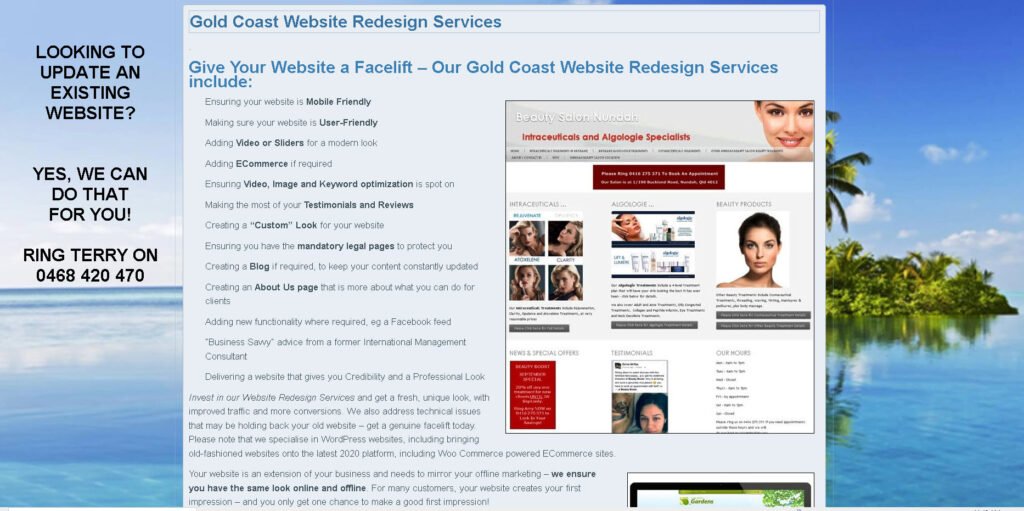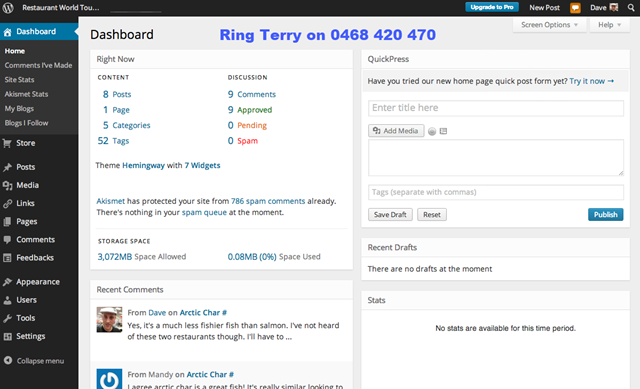
Introduction: The Digital Landscape
In the contemporary economy, the importance of having a website cannot be overstated. In today’s digital age, a well-designed website serves as the cornerstone of a business’s online presence. From small startups to large corporations, every company can benefit from having a dedicated space on the internet to showcase their products and services. With the rapid advancement of digital technology, having a website is no longer a luxury but a necessity for staying competitive in the marketplace.
The first and foremost advantage of having a website is the ability to reach a broader audience. A website enables businesses to transcend geographical limitations, allowing potential customers from around the world to discover their offerings. This global reach significantly enhances visibility, leading to increased brand awareness and opportunities for growth.
Furthermore, 24/7 accessibility means that customers can browse products and services at their convenience, which can lead to improved customer engagement and sales.
The Advantages of Having a Website allow businesses to effectively communicate their brand message and values to their target audience. Through well-crafted content and visuals, companies can convey what makes them unique, thereby attracting loyal customers. In this digital landscape, consumers tend to research online before making purchasing decisions, making it critical for businesses to establish a credible online presence. A professional website serves as a platform for sharing testimonials, case studies, and other forms of social proof, which can build trust and credibility with prospective clients.
In essence, understanding how a website helps your business is paramount. With numerous options available, including our offer of free web design services, with the minimal expense of paying only for hosting and domain registration, the advantages of having a website are evident. Establishing a solid online presence is an essential step towards unlocking the full potential of any business in the competitive digital marketplace.
Importance of Having a Website –
Building Credibility and Trust
In today’s digital landscape, an online presence is essential for businesses seeking to establish credibility and build trust with their customers. A professional website serves as a vital tool in this endeavor, offering numerous advantages that can significantly impact customer perceptions.
Firstly, the design and functionality of a website reflect the quality and professionalism of a business. A well-crafted website instills confidence in potential clients, as it demonstrates dedication and competence in delivering products or services. An attractive and user-friendly interface enhances the overall customer experience, making it more likely for visitors to engage further with the brand.
Another key aspect of how a website helps your business in building credibility is through the display of testimonials and case studies. Showcasing positive reviews and success stories not only validates a business’s offerings but also engages prospective customers by providing social proof. When visitors see feedback from satisfied clients, they are more inclined to trust the business and consider making a purchase or booking a service. Furthermore, an informative blog or resource section can position the business as an authority in its industry, further enhancing credibility.
Moreover, the availability of essential information, such as contact details, business hours, and service descriptions, increases transparency and trustworthiness. By allowing visitors to easily find the information they need, a website fosters a sense of reliability. Ultimately, the advantages of having a website transcend mere visibility; it empowers businesses to establish a lasting impression, build rapport, and foster relationships with clients. In conclusion, a professional online presence is paramount in enhancing a business’s credibility and trust, leading to increased customer engagement and conversion opportunities.

Cost-Effectiveness: Low Initial Investment
One of the most significant advantages of having a website is the minimal cost associated with establishing an online presence. In contrast to traditional marketing methods, which often require substantial financial outlays for print ads, television spots, or billboards, starting a website primarily involves just two fundamental expenses: hosting and a domain name. These costs are notably lower than the ongoing expenses typically linked to conventional marketing strategies.
When a business opts for a website, it can achieve greater reach and engagement at a fraction of the cost. For example, while a single print advertisement can easily exceed hundreds or even thousands of dollars, the cumulative annual cost of maintaining a professional website can be significantly less. With many providers offering free web design options paired with affordable hosting and domain packages (as we do), businesses can launch their online platforms without a hefty upfront investment.
Moreover, a website offers long-term financial benefits that far surpass its initial costs. With an online presence, businesses can leverage various digital marketing tools that are often more affordable and far-reaching than traditional methods. Techniques such as search engine optimization (SEO), social media marketing, and email campaigns can enhance visibility and drive traffic, all while keeping expenses in check. Additionally, the ability to showcase products or services online enables potential customers to interact with a business at their convenience, leading to increased sales opportunities. We include SEO in our package.
Ultimately, the decision to establish a website can lead to significant savings over time, as it is an investment that continues to yield returns. Rather than pouring resources into transient marketing strategies, businesses can focus their budgets on maintaining and improving their online presence—reaping the benefits that come from effectively harnessing how a website helps your business grow.
Importance of Having a Website –
24/7 Availability: Always Open for Business
One of the significant advantages of having a website is the ability to operate continuously, 24 hours a day, seven days a week. Unlike traditional physical locations, a website allows businesses to remain accessible to potential customers at all times, thus ensuring that opportunities for engagement and sales are never missed, even outside regular business hours. This constant availability is particularly beneficial for businesses that aim to tap into different geographic markets, especially those that operate across various time zones.
When consumers browse online, they expect immediate access to information about products and services. A well-designed website provides this instant access, enabling businesses to attract leads even when their physical doors may be closed. Websites serve as digital storefronts that showcase offerings, provide detailed information, and facilitate transactions without the constraints of traditional business hours. This availability significantly boosts the potential for generating sales and leads, making it an essential aspect of any modern business strategy.
Furthermore, the ability to interact with customers continuously can lead to increased customer satisfaction and loyalty. When customers have questions or require support, they can access resources on a website, such as FAQs or live chat options, at any time. This level of service reinforces the notion that the business values its customers and is committed to providing assistance whenever needed. Consequently, utilizing free web design options for setting up a website allows small businesses to mitigate initial costs, allowing them to focus on essential expenditures like hosting and domain registration while still enjoying the myriad benefits of round-the-clock operation.
In conclusion, a website serves as a powerful tool for maximizing business potential. By being available 24/7, businesses can reach more customers, cater to diverse audiences, and ultimately enhance their sales opportunities, affirming the notion that a website is an integral aspect of successful business operations.
BUILT ON WORDPRESS

Expanding Reach: Accessing Global Markets
In today’s digital landscape, one of the foremost advantages of having a website is the immense global reach it offers businesses. Unlike traditional brick-and-mortar establishments, which are often confined to a specific geographical area, an online presence allows businesses to tap into international markets and attract a wider audience. A website serves as a virtual storefront that is accessible 24/7, thereby removing limitations related to operating hours and location.
By leveraging a website, businesses can cater to diverse demographics across various regions, enabling them to connect with potential customers from different cultural and linguistic backgrounds. This accessibility not only enhances the customer base but also fosters brand loyalty and trust among clients who may be seeking products or services that resonate with their unique needs.
Moreover, breaking geographical barriers is vital in today’s competitive environment. When a business operates solely offline, it risks missing out on valuable opportunities in foreign markets. However, a well-designed website can showcase offerings globally, ensuring that products can be marketed and purchased by customers regardless of physical location. This shift not only augments sales potential but also increases brand visibility and reputation on a global scale.
In addition to providing global access to products and services, effective website design can facilitate dynamic features such as multilingual support, which encourages inclusivity and user engagement from international clients. The combination of these features enhances how a website helps your business and amplifies its competitive edge.
Thus, by understanding and embracing the importance of having a website, businesses can establish a robust online presence that not only drives sales but also fosters growth in previously untapped markets, promoting extensive expansion and sustainable success.
Importance of Having a Website:
Enhancing Customer Interaction and Engagement
In today’s digital age, how a website helps your business cannot be overstated, particularly regarding customer interaction and engagement. A well-designed website serves as a central hub for communication, offering various tools and features that promote seamless interaction between businesses and their clients. For instance, contact forms are a fundamental element that allow customers to reach out effortlessly with inquiries, feedback, or service requests. By simplifying the communication process, businesses can respond promptly, establishing a relationship built on trust and reliability.
Another crucial aspect of enhancing engagement is enabling direct customer feedback options. Businesses can utilize surveys and feedback forms embedded within their websites to gain insights into customer preferences and experiences. This feedback can inform decision-making processes and service improvements, ultimately fostering customer loyalty as clients see their suggestions being taken seriously. Additionally, incorporating testimonials and user reviews strengthens credibility and adds a personal touch, inviting new customers to explore a company’s offerings.
In summary, the advantages of having a website extend beyond mere online presence; they are vital for fostering strong customer relationships. By employing features such as contact forms and feedback tools, businesses can significantly enhance user experience. This engagement not only promotes customer loyalty but also positions your business as responsive and customer-centric in a competitive marketplace.

Importance of Having a Website:
Showcasing Products and Services Effectively
In today’s digital era, having an online presence is crucial for businesses looking to thrive. One of the primary advantages of having a website is the ability to showcase products and services effectively. A well-designed website serves as a virtual storefront, enabling businesses to present their offerings in a visually appealing manner. High-quality images allow potential customers to see products from various angles and perspectives, providing a clearer understanding of what is being offered. Unlike traditional marketing methods such as print catalogs or physical displays, a website can reach a more extensive audience with greater ease.
Detailed descriptions accompany the images, providing essential information that can influence buying decisions. These descriptions can include specifications, features, and unique selling points that set a business apart from its competitors. By engaging customers through well-crafted content, businesses can enhance their credibility and reliability. Furthermore, a website provides an interactive platform where potential customers can navigate freely, allowing them to explore multiple products and services without feeling rushed. This level of interactivity is a significant advantage compared to more passive traditional advertising.
Another crucial aspect is that a website can incorporate multimedia elements, such as videos and customer testimonials, further enhancing the presentation of products and services. Videos demonstrating how a product works, paired with customer feedback, can effectively persuade potential buyers about the worthiness of their investment. Moreover, with the availability of free web design options, businesses can create a professional-looking website without extensive financial commitments. As a result, they only need to focus on the cost of hosting and domain registration. Overall, the benefits of a website in showcasing products and services cannot be understated; it provides a competitive edge that is essential in today’s market landscape.
Leveraging Data Analytics for Growth
Having a website is integral for businesses, especially when it comes to leveraging data analytics for growth. One of the key advantages of having a website is the ability to track visitor behavior and various metrics. Through tools like Google Analytics, businesses can gain profound insights into how users interact with their web pages. This information enables organizations to assess which content resonates most with their audience, how long visitors stay on specific pages, and where they tend to drop off. Such data is invaluable for refining their digital strategy.
Understanding visitor behavior can inform marketing strategies effectively. For instance, if data reveals that certain products have higher engagement rates, firms can prioritize these offerings in their promotional campaigns. Additionally, tracking geographic and demographic information allows businesses to tailor their advertising efforts to specific audience segments. This level of targeted marketing often leads to increased conversion rates, demonstrating a clear benefit of leveraging a website to anticipate and meet customer needs.
In conclusion, the ability to leverage data analytics through a website is a powerful tool for driving business growth. Tracking visitor behavior allows companies to make informed decisions regarding marketing strategies and user experience enhancements. As businesses adapt to these insights, they position themselves for sustainable success in an increasingly digital marketplace.
IMPORTANCE OF HAVING A WEBSITE – ALL BUSINESSES COVERED

Conclusion: Taking the Leap into the Digital World
In today’s increasingly interconnected marketplace, having a website is no longer a luxury but a necessity for businesses aiming to thrive. The advantages of having a website extend far beyond mere online presence; they serve as an essential platform that showcases your products or services, builds credibility, and fosters customer engagement. A well-designed website, even when utilizing options for free web design, can transform your business’s image, making it more accessible to a broader audience.
Moreover, the potential benefits of establishing a strong digital footprint cannot be overstated. Not only does a website facilitate better customer interaction and support, but it also enables businesses to harness valuable metrics regarding consumer behavior and preferences. By understanding your audience, you can tailor your offerings and marketing strategies more effectively. Therefore, if you have yet to join the digital revolution, now is the perfect time to consider how a website helps your business flourish in a competitive landscape.
Creating an online presence may appear daunting, especially with various options available. However, one can start with basic elements like paying only for hosting and domain to establish their presence affordably. By taking incremental steps, businesses can develop a functional website that grows with them. Remember, your website serves as a vital marketing tool—one that should reflect both the uniqueness of your brand and the needs of your audience.
In conclusion, taking the leap into the digital world is pivotal for those who wish to unlock their business’s true potential. Embrace the advantages of having a website and transform your operations, outreach, and customer relationships. Your digital journey awaits—begin today.
Thank you for Reading our Article on the Importance of Having a Website.